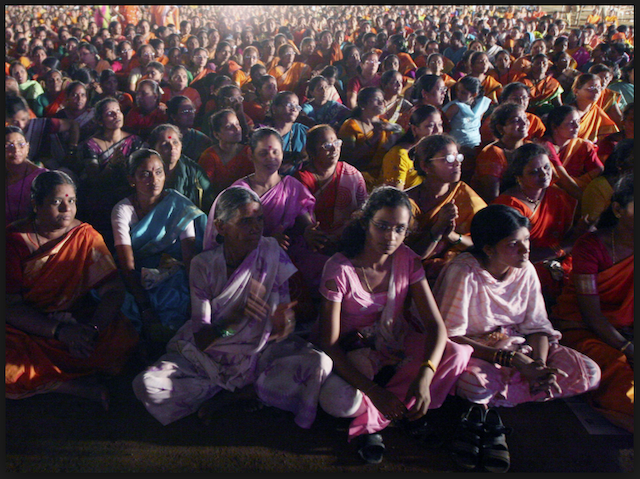The Congress Party’s performance in the 2024 Lok Sabha elections, netting 99 seats, has been hailed by some within the party as a beacon of resurgence. However, rather than bask in modest gains, Congress should see this outcome as a reminder of the long road ahead. As recent assembly elections highlight, the party faces substantial limitations in states where it’s the primary challenger to the BJP. In regions where Congress must lean on alliances, the complexities of regional power-sharing pose yet another obstacle to regaining national prominence.
Despite Rahul Gandhi’s prominent presence and public initiatives, the Congress leader’s appeal hasn’t translated into consistent electoral gains. His Bharat Jodo Yatra may have captured public attention, portraying him as a conscientious leader focused on unity and progressive values. However, Rahul’s message and approach, while admirable, have struggled to cut through the BJP’s disciplined, grassroots organizational structure. This discrepancy is most apparent in recent assembly contests like Haryana and Jammu & Kashmir, where Congress floundered in head-to-head matchups against the BJP.
Moreover, the reactions from regional allies following Congress’ modest success reveal just how limited Congress’ leverage remains within the opposition coalition. In Maharashtra, Shiv Sena (Uddhav Thackeray faction) leaders, while supportive of Congress’ wins, have been cautious in endorsing the party’s broader influence. Uddhav Thackeray himself expressed concern over how the Congress might position itself within Maharashtra’s political framework, cautioning that “unity doesn’t mean an upper hand.” Such sentiments reveal an underlying anxiety among regional players, who are wary of Congress dominating seat-sharing agreements in pivotal states like Maharashtra, Uttar Pradesh, West Bengal, and Bihar.
Mamata Banerjee’s Trinamool Congress (TMC) has echoed similar sentiments. While Banerjee welcomed Congress’ wins, she has been vocal in signaling that Congress should not overstep in states where regional dynamics are intricate and deeply rooted. West Bengal, which remains a TMC stronghold, is particularly illustrative of this tension. As Banerjee bluntly stated, “Congress must respect regional realities,” underscoring the message that her party won’t tolerate a diminished role in favor of Congress’ ambitions.
The implications are clear: the Congress cannot afford to misjudge its strength, especially when it is dependent on allies who won’t hesitate to assert their primacy. Regional parties like the TMC, Shiv Sena, and Samajwadi Party each command loyal voter bases, and they are unwilling to cede ground in their territories. This will complicate seat-sharing in 2029, especially as Congress looks to expand its footprint in areas where regional actors hold sway.
For Congress, the path forward requires recalibrating its national ambitions within a realistic framework. Instead of aiming to assert itself in states where it’s seen as a secondary force, Congress must focus on building stronger, direct voter connections and enhancing its organizational capacity in states where it remains competitive. Rahul Gandhi’s leadership will need to evolve to encompass both coalition management and a sharper, more compelling message that resonates across India’s diverse constituencies.
With the BJP still firmly in control and regional allies asserting their autonomy, the Congress can’t afford complacency. The party needs a strategic shift that reflects an India increasingly characterized by regional pride and complex local dynamics. By celebrating small gains and overestimating its influence, Congress risks alienating allies and, worse, missing the opportunity to rebuild in regions where it still has potential.
A glance at the party’s aging leadership reveals a persistent challenge in adapting to a changing political landscape. In key states like Madhya Pradesh and Rajasthan, veteran leaders such as Kamal Nath (77), Ashok Gehlot (73), and Bhupinder Singh Hooda (76) continue to wield significant influence, but their longevity has stymied the rise of new, energetic leaders who could invigorate the party. In critical regions like Uttar Pradesh, too, 72-year-old Pramod Tiwari remains a dominant face, underscoring the party’s reliance on an older guard that may no longer resonate with an increasingly youthful electorate.
Compounding this, Rahul Gandhi’s once-promising team from 2004 to 2013 has been depleted by defections to the BJP, including prominent names like Jitin Prasada, Jyotiraditya Scindia, Milind Deora, and RPN Singh. This exodus reveals a lack of retention and inspiration within the party ranks, spotlighting the difficulty Congress faces in fostering and maintaining a robust, dynamic cadre in an era where the BJP has managed to attract Congress’ own rising stars.
In sum, the 2024 verdict serves as a cautious reminder rather than a resounding endorsement. Congress may have regained ground, but without introspection, coalition cooperation, and realistic ambition, it risks seeing its gains erode. The goal now isn’t a victory lap – it’s an urgent need to rebuild, reimagine, and realign for an India that demands far more than 99 seats from its opposition.

Saurabh Chauhan, an independent journalist, has over 15 years of experience in Print and Digital Media. He has extensively written on a variety of issues including women’s rights, environment, crime, governance, finance and politics at Shimla, Chandigarh and Lucknow. Saurabh currently divides his time between Shimla and his native place in Kotgarh (Shimla Hills).




